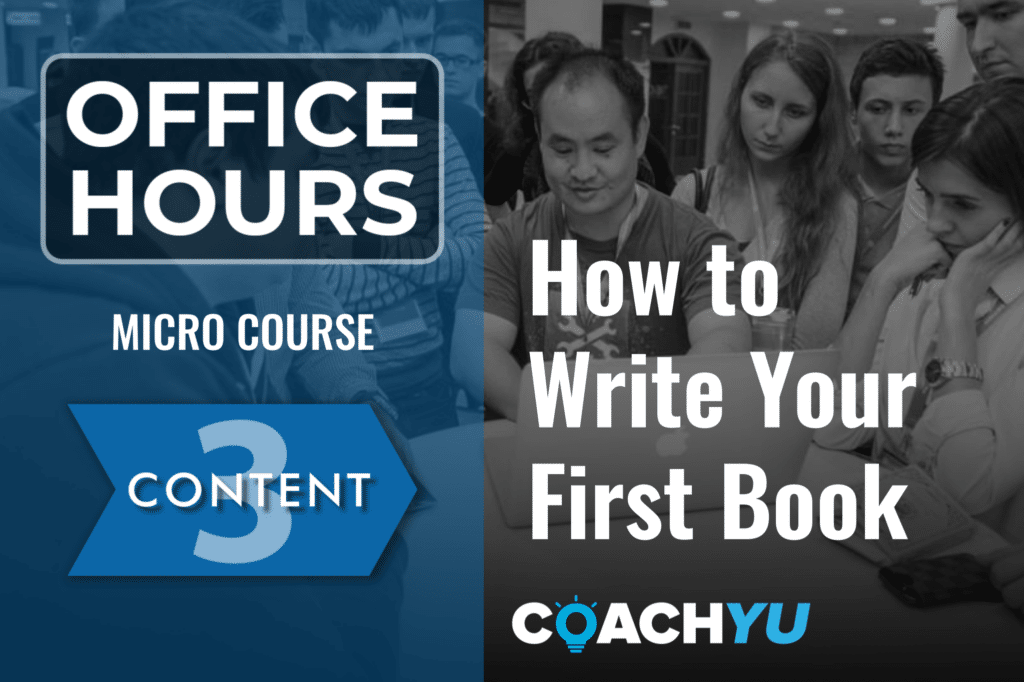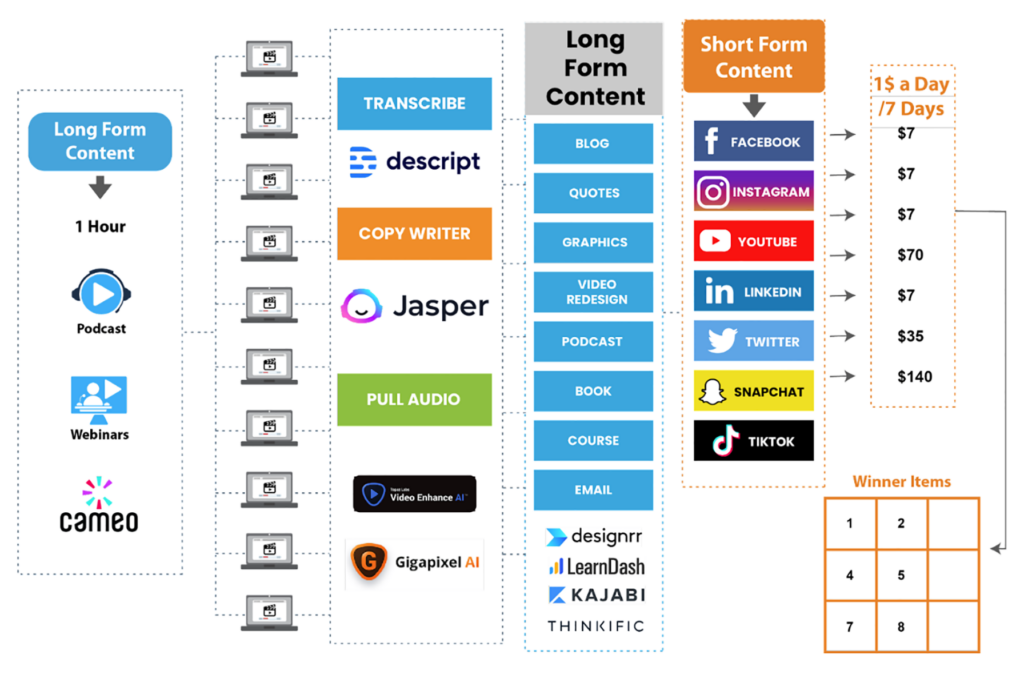
A book holds PR power, showcasing expertise. Interviewing industry authorities boosts perceived authority, even if you’re not an expert yourself.
A trend of authors collaborating and interviewing each other is growing, benefiting from shared knowledge.
Recently, I interviewed top CEOs and industry experts for a book on the modern healthcare consumer. Originally about Sam Tejada, it evolved into a collaborative effort, sharing knowledge and fostering growth. Interviews added value despite increased costs.
Collaboration with successful individuals amplifies its promotional impact. The book’s completion is just the beginning; promotion requires three times more effort.
How to Interview
From these interviews, I learned a few things about the process of interviewing for a book:
- It’s important to prepare for the interview. Don’t just watch their YouTube videos or Google them the night before. You need to know their stuff so well that when you speak to them, it feels like you’re a friend and you’re not going to ask them these cold, canned questions like, who are you or what is your view on the state of the industry, and so on.
- Show respect. You don’t want just to have a VA ask questions. I think we had four or five canned questions, and the VA would just ask these questions. If the vibe isn’t good, that will reflect in the book.
- Make sure you have a high-level person to conduct the interview; one who has industry awareness or authority, not necessarily on the subject itself, which of course, is a plus. Have a media authority and someone who has published books, has bestselling books and has interviewed a lot of other people on camera and on Zoom.
- Personalize the questions based on the person’s expertise and industry. For example, Ben Crosby came from the fitness industry and scaled to 500 locations for Tapout Fitness. His view of IV therapy is that it will be much like the fitness industry. So I asked his view specifically around scaling because this guy’s an expert in scaling.
- Improve the vibe of the interview by sending a gift, like our socks ordering process, before the interview, giving context about how the interview will be used in the book, and offering to send a copy of the transcript for review.
- Thank the interviewee and invite them to add any thoughts that they may have forgotten or want to revise during the interview. The goal is to make the interviewee look good, along with the other industry leaders in the book. At that point, you will get an endorsement where they’ll say something like, it’s been a pleasure working with you guys, or, I really like what you’re doing. You can request their permission to quote that endorsement and so you have one more piece of content for the book. Such stories, videos that you co-create with these other experts, and positive mentions are the ones that will make the book unique as against using AI tools like ChatGPT alone to create a book; and lastly,
- Ask if their positive mentions about the author can be quoted in the book and used for promotional content. Compile such mentions from all interviewees and promote them.
Using Tools Like ChatGPT
Use tools like ChatGPT to enhance knowledge, structure the outline, rewrite words, figure out headlines or chapter titles, and even write a promotional email for the book.
If you ask a great chef what his secret is, he would say great ingredients.
So, ChatGPT cannot help with the interview’s stories and weaving in real stories and videos, which are considered the “great ingredients” of the book. These “great ingredients” are the raw videos made and co-created with other influential figures in the industry.
Putting It All Together
So repurpose the content using such tools, virtual assistants (VAs), and other methods to craft and repurpose content, as taught in the Content Factory.

Instead of getting the book out, if it’s your first book, try to get a book out.
As part of getting a book out, focus on naturally interviewing other experts based on an outline and having VAs help put the content together.
Leveraging the idea of a book, which is already a high authority, and leveraging the power of relationships with industry connections, who are vouching for the author, are effective ways to multiply perceived authority.
Also, repurpose long-form content into other types of assets, such as articles, blog posts, repurposable videos, and social media snippets, and boost them for a Dollar a Day. This way, it’ll be creating many derivative forms of repurposing content, which in Google’s eyes, are entirely legit.
PR Is a Multiplier of Your Brand
PR is not about hiring an agency with black-box tricks but about amplifying what people already see about you. Real PR is about relationship-building and co-creating content with other people who share the same values.
By having VAs and friends promote this content, it is authentic and more effective than hiring a PR agency. For example, instead of fake featuring on Forbes, identify industry experts whose audience can promote your brand because you’re promoting them. When you have this realization, it opens up a matrix of possibilities, and everything becomes powerful.
Structure of the Book
There can be two ways to structure a book that involves multiple authors or experts.
The “lazy” way of structuring a book as an anthology where each author contributes a chapter, which is similar to a listicle or roundup. However, this is not the best way to structure a book, as it is not tied together and lacks structure.
Instead, develop an outline that is structurally based on the journey you want readers to go through, and then interview experts who may have expertise in one or multiple functional areas. The number of experts to be interviewed and included in the book depends on the size of your network and the topic you’re trying to cover.
For example, Tony Robbins, in his book Life Force, is trying to cover the entire gamut of functional wellness, which is cryos, stem cells, gene therapy, peptides, and many others. There are so many different experts. So he has maybe 20 people in this book, that’s like 600 pages. But you could easily just have it be two or three.
It’s important to structure the book in a way that is concise and valuable.
The “IF-IF-THEN-ELSE GUARANTEE” that Perry Marshall told me about over dinner one day is a great framework to structure a book.
‘IF you’re this particular type of person, and IF you agree to do these things, THEN I GUARANTEE you will achieve this particular result, ELSE a full refund.’
It helps you think about the book’s structure, the criteria that need to be met, the steps that need to be taken, and the ‘gotchas’ that need to be avoided.
People will buy your book because they believe that they will be able to achieve the result as they fit those particular criteria of being in that situation, they feel that the things that you’re prescribing them to do are things that they could do, and they’ll buy the book or pay the money for the course or join the mastermind or do whatever.
Your Authority
But before writing a book, it’s important to establish authority on the subject. Focus on a specific niche or have personal experience with the topic in order to be able to teach others about it.
The book encapsulates your authority of having solved a particular problem in a way that other people say, “Dang, Nick is a LIGHTHOUSE for solving this particular challenge.”
